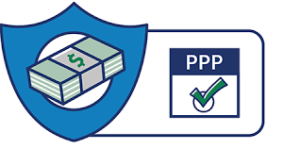Concern that Virginia is seeking to tax federal pandemic relief grants to Virginia businesses – grants which kept Virginians employed — is putting a normally routine tax administration bill in jeopardy.
The House Finance Committee on Monday approved the annual bill to bring Virginia tax law into conformity with the Internal Revenue Code effective December 31, 2020. But eight of 22 committee members voted no, and a similar division in the full House would kill the bill. The bill needs to go into effect immediately to be reflected on tax returns now being prepared, but that requires an 80% super majority.
The Thomas Jefferson Institute for Public Policy, joined by the National Federation of Independent Business and the Virginia Society of Certified Public Accounts, opposed one section of the bill in committee testimony (watch with the link). While Congress told businesses with PPP loans that they can deduct the wages and salaries they maintained to earn forgiveness of the loans, Virginia wants to disallow those costs as a deduction.
That effectively taxes the forgiven loan. Consider the following simple example.
Acme Inc. struggled through the pandemic with $200,000 in sales and $200,000 in operating expenses. On that basis alone, it would show zero profit for 2020 and thus owe no federal or state income tax.
Add in a $100,000 PPP loan and this is how things change: Acme spends the money as Congress intended, mainly keeping its payroll intact. The PPP loan is not treated as income; that is not in dispute. But this time when Acme calculates its state taxable income, it can only deduct $100,000 of its costs against its $200,000 in sales revenue. That leaves a $100,000 taxable profit on its state return.
Is the resulting tax on the loan or on the profit that resulted from the loan? It makes no difference. There would be no tax if there had been no loan. Without the loan, there might well be no more company.
The tax policy bill will be considered by the full House of Delegates later this week. Here is the text as it stands and here is the bill history so far. A similar Senate bill is pending.
When the PPP program was established last spring in the COVID relief CARES Act, it was clear that if a business took the loan and maintained its payroll and operations, the loan would be forgiven. It was also clear that the forgiven loan would not be considered taxable income. But that bill was silent on the tax treatment of the continuing company operating expenses that removed the need to repay the loan, dollar for dollar.
In its interpretation of the CARES Act last year, the U.S. Treasury ruled the expenses could not be deducted. But in December, in the latest round of COVID relief legislation, Congress reversed the Treasury. The December law turned the loans, if used as intended to keep the business payroll intact, into tax-free grants. Fail to allow the deductions on state returns, and in Virginia they become taxable income again.
Secretary Layne told the committee Monday that it wouldn’t be fair to allow these deductions for the companies that received PPP loans since not every company got one. “This would be a different analysis if everybody had gotten PPP loans,” he said. He went on to note that nationally about 50% of the loans went to five percent of companies, often quite large.
Companies that didn’t get PPP loans often got bank loans, if they could, to keep the doors open, he said. But apparently about 113,000 Virginia business entities did get PPP loans, so this policy debate will have a major impact on some of them.
Layne also noted that the state and local programs providing similar business recovery grants, usually much smaller, will expect the recipients to treat those grants as income. If so, that disparity could be fixed by doing for them what Congress did for the PPP funds.
The state projects that if the PPP-related costs can also be deducted in full, its income tax collections will be reduced $340 to $500 million over two years. That tells you how much money flowed in under PPP to keep Virginia businesses alive and staffed.
“I would agree it was always (Congress’s) intent to allow deductibility,” said Delegate Joseph McNamara, R-Salem, who had offered his own bill on the PPP tax issues and another bill to return Virginia to rolling conformity. Both were tabled after the administration bill, sponsored by Delegate Vivian Watts, D-Annandale, advanced 14-8. If all legislators are present later this week, 21 votes in the full House defeat it.
A year ago, pre-pandemic, PPP was not even on anybody’s radar screen. The federal government created it to rescue businesses in a sudden deep recession, with much of the problem caused by the government’s own restrictions and lockdowns. Virginia now wants to tax that rescue money when Congress does not? The Thomas Jefferson Institute is opposed to that.
Originally published this morning by the Thomas Jefferson Institute of Public Policy.



